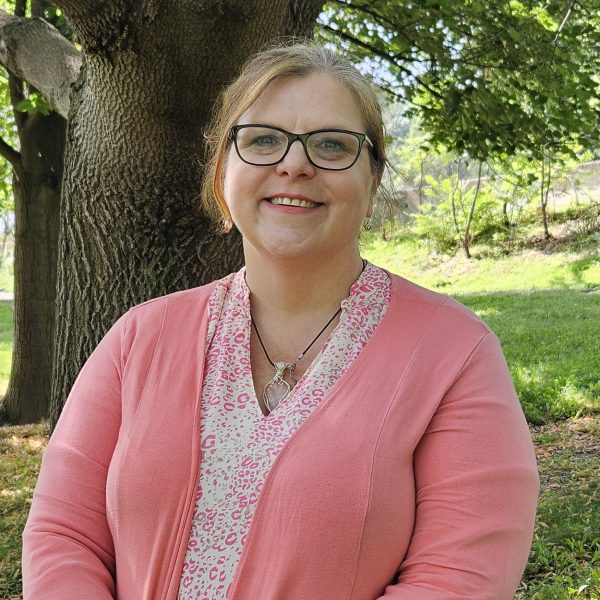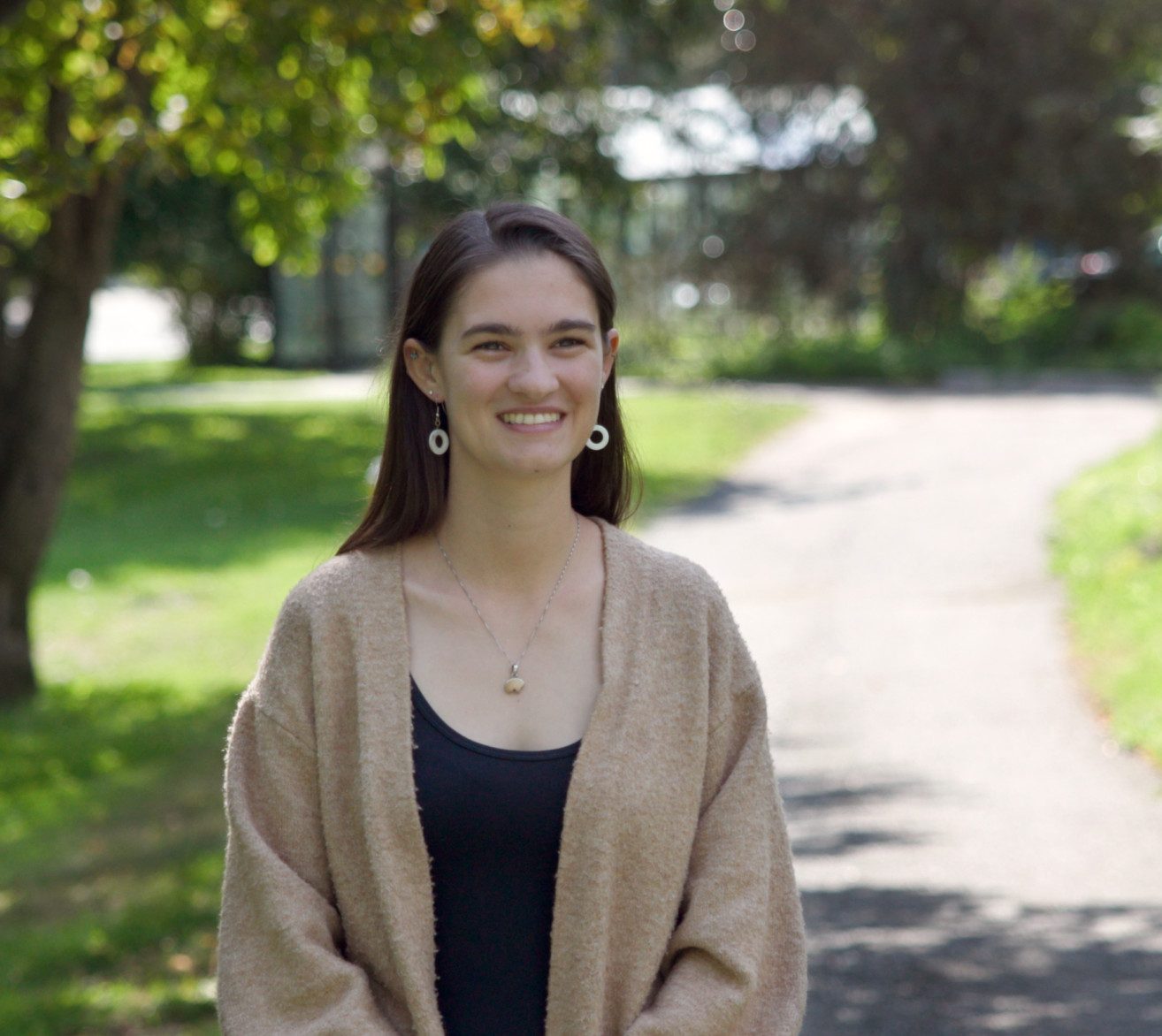
TRU makes education more accessible and inclusive
Video: What are open educational resources?
The high cost of post-secondary course materials can be a barrier to student success, impacting their choice of courses, the quality of their learning experience and their academic performance.
Thompson Rivers University (TRU) is making post-secondary education less expensive and more accessible through open educational resources (OER), which give students and faculty easier access to learning, teaching and research materials and save students thousands of dollars over the years.

Publishing Manager Dani Collins, TRU Open Press
Accessible resources
Open educational resources are managed by TRU Open Press — a strategic initiative launched in 2023 by Brenna Clarke Gray, co-ordinator of educational technologies on the Learning Technology and Innovation team, and Marie Bartlett, instructional designer with Open Learning. TRU Open Press was created to address the challenges of sustained funding and resources for OER projects. Open educational resources include digital textbooks, videos, podcasts, course content and other educational tools that can be freely used, adapted and shared to support education at all levels.
Open Press collaborates closely with the Learning Technology and Innovation team and with Open Learning media, sharing knowledge and expertise, while hiring students as research assistants and for co-op positions.
“(We’re) committed to fostering innovation, creating OER that meet the diverse needs of students here at TRU and beyond, supporting faculty and driving other strategic projects across campus,” says Dani Collins, publishing manager at TRU Open Press.
“All the educational materials we create with faculty and students are openly licensed, allowing other instructors at TRU and beyond to adapt or modify them. This approach helps reduce the reliance on costly textbooks and restricted educational resources.”
Sharing the benefits

TRU Bachelor of Science student Kira Reierson
Bachelor of Science student Kira Reierson, who is completing her last semester at TRU, discovered the benefits of open educational resources in her first year through a physics professor who provided an online textbook for the course.
“The open textbook app was accessible wherever and whenever we needed it, making it really convenient to use,” she says.
Reierson also welcomes the OER as a proven cost-saver, making courses more affordable. “I’ve saved probably upwards of $600 just by using open textbooks and open resources during my degree.”
The Bachelor of Science student recommends faculty adopt open textbooks because students appreciate not having to pay for them and welcome the convenience of having resources readily available.
Working alongside Dr. Natasha Ramroop Singh, Reierson is researching what students know about open education resources.
“Hopefully students learn about all sorts of different resources they have access to and how helpful and useful these resources can be,” she says.
Faculty sees benefits as well, incorporating OER materials into their courses at no cost and adapting them to be more accessible to suit students’ diverse needs.
“Rather than the one-size-fits-all model of most educational resources, instructors can edit, reorder and remix OER materials in various ways, allowing them to align resources with their teaching approach,” says Collins.
“Instructors can integrate supplementary materials directly into OER textbooks, streamlining access and enabling updates with the latest or culturally relevant content. This flexibility helps instructors customize their courses more effectively and ensures that students receive the most relevant and up-to-date information.
“When instructors use openly licensed educational resources in their courses, students win,” says Collins.
Find out more
Students can access OER online with a provided URL address from their instructors, if the instructor is using an OER in their course, or they can check out the TRU Library’s OER Libguide or the Open Press website. There are several other open collections, including the B.C. Open Collection at BCcampus.
To find out which courses at TRU currently provide open educational resources, access the interactive map.
Faculty can request help with creating OER for their own teaching by contacting TRU Open Press directly at [email protected].
